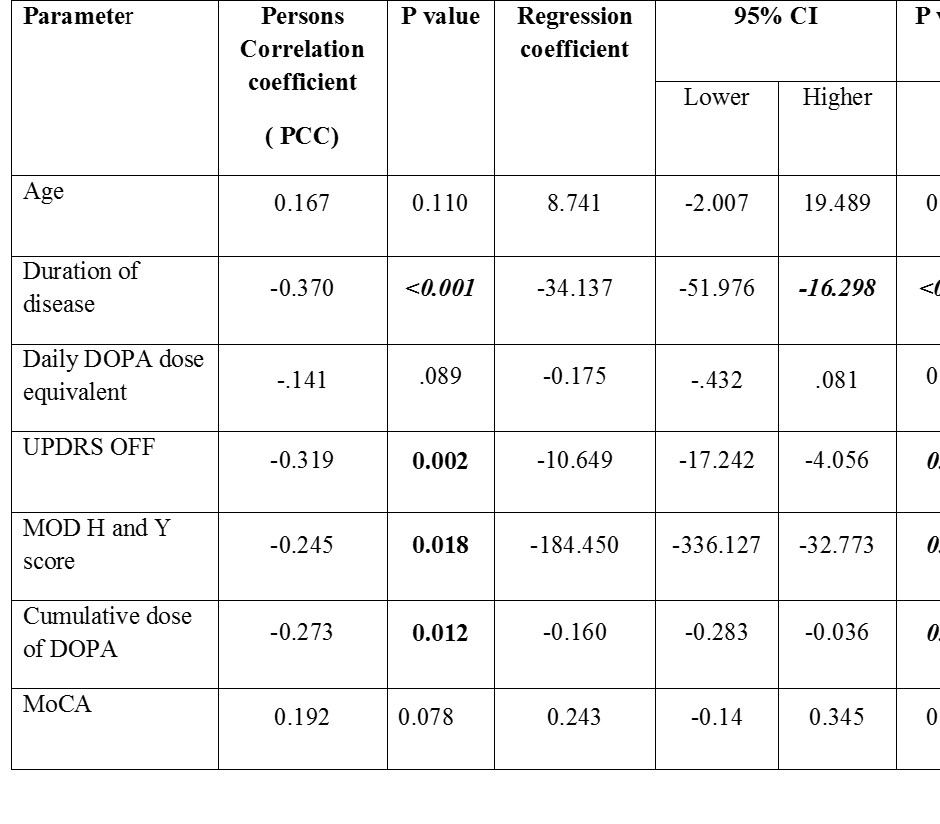Session Information
Date: Wednesday, June 7, 2017
Session Title: Neuropharmacology
Session Time: 1:15pm-2:45pm
Location: Exhibit Hall C
Objective: To compare serum Vitamin B12 levels among PD patients and normal controls and to assess the association of Vitamin B12 levels with various disease parameters, peripheral neuropathy and cognition.
Background: Medication for idiopathic Parkinson’s disease may alter vitamin B12 absorption and metabolism leading to deficiency. This may be eaggerated in a country like India where vegetarianism is common.
Methods: Ninety three PD patients and 70 age matched controls were included. Those with a history of other systemic illnesses or toxin exposures which can cause peripheral neuropathy; family history of neuropathy; chronic alcoholics; strict vegetarians; and those taking any vitamin supplementation were excluded. Detailed history and clinical examination was performed in all. UPDRS-III in ‘on’ and ‘off’ state to asssess motor diability, Montral cognitive assessment scale (MoCA) for cognition Nerve conduction study were performed in all patients. Serum vitamin B12 and homocysteine (Hcy) levels were assessed in all. . Statistical significance was tested by Independent sample t-test. Mann Whitney U test, Pearson’s correlation coefficient and chi square test.
Results: Mean disease duration was 7.39 + 5.12years were included. Mean UPDRS III scores in ‘off state was 54.96 +34.69), Mean daily levodopa dosage was 774.9 + 789mg and main daily levodopa equivalent dose(LEDD) was 967.8 +1243.8) mg and mean MoCA score was 28.6 +1.5. When compared to controls, patients had significantly lower serum vitamin B12 values (p=0.027) but there was no difference in the prevalence of B12 deficiency, hyperhomocysteinemia and peripheral neuropathy. Among PD patients weak negative, but statistically significant correlation of serum B12 levels with duration of the disease (PCC=-0.37, p value < 0.001), UPDRS off score (PCC=-0.319, p value 0.002), Modified H & Y score (PCC= – 0.245, p value 0.018) and cumulative dose of levodopa (PCC = -0.273, p value 0.012). No significant correlation was noted with MoCA scores.[Table]
Conclusions: Serum B12 levels were lower in PD patients compared to controls and had a weak but significant negative correlation with cumulative levodopa exposure, duration and severity of the disease.
To cite this abstract in AMA style:
R. Kandadai, N. Mathukumali, S.S. Meka, S. Tandra, A. Kohat, M. Kanikannan, R. Borgohain. Serum vitamin B12 levels in patients with Parkinson’s disease and its association with peripheral neuropathy and cognition [abstract]. Mov Disord. 2017; 32 (suppl 2). https://www.mdsabstracts.org/abstract/serum-vitamin-b12-levels-in-patients-with-parkinsons-disease-and-its-association-with-peripheral-neuropathy-and-cognition/. Accessed January 28, 2026.« Back to 2017 International Congress
MDS Abstracts - https://www.mdsabstracts.org/abstract/serum-vitamin-b12-levels-in-patients-with-parkinsons-disease-and-its-association-with-peripheral-neuropathy-and-cognition/

